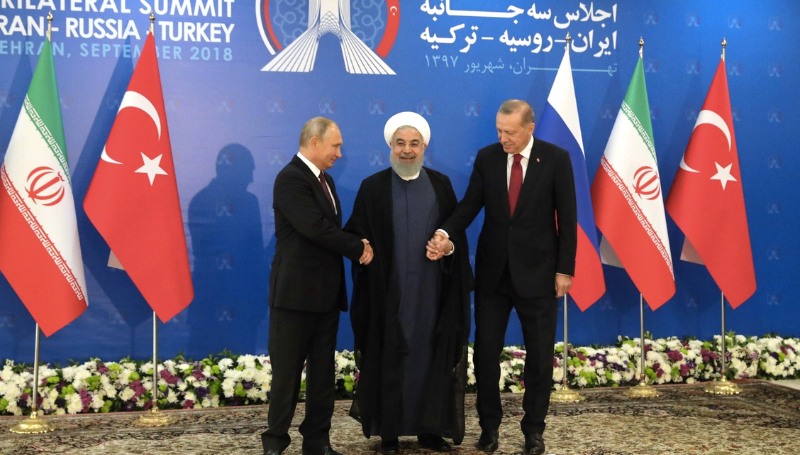Soner Cagaptay and Andrew J. Tabler
Washington Institute for Near East Policy, July 18, 2022
“An incursion into Tal Rifaat would deny the regime two vital resources: water supplies and a local airfield. It would also knock Iranian-backed militias down a peg and send them southward.”
The July 19 Tehran summit between Presidents Recep Tayyip Erdogan, Vladimir Putin, and Ebrahim Raisi will likely determine whether a brewing Turkish incursion into Syria actually takes place. In recent years, Ankara has focused its cross-border efforts on undermining the Kurdish-led People’s Defense Units (YPG), which controls parts of the country’s northern territory. If Moscow and Tehran wind up greenlighting another incursion, their negotiations with Erdogan will likely determine which YPG-controlled areas Turkey and its local proxies seek to capture.
Turkey’s Goals
The United States has partnered with the YPG to fight the Islamic State (IS) for several years now, particularly since the Kurdish group folded into the Syrian Democratic Forces (SDF) umbrella organization. Yet Ankara remains focused on the fact that the YPG is an offshoot of the Kurdistan Workers Party (PKK), a Turkish group designated as a terrorist entity by Ankara and Washington alike.
At first, Turkey grudgingly went along with U.S. assistance to the YPG because Washington indicated that the partnership would be temporary, transactional, and tactical. In the interest of preventing an IS resurgence, however, U.S. policy has since evolved into an open-ended commitment to the YPG-led SDF—a policy born of the group’s proven ability to retake large swaths of Syria from IS with U.S. help. In response, Turkey has carried out four cross-border incursions since 2016, breaking apart the SDF-controlled zone.
As part of this ongoing strategy, and in the context of Russia tactically drawing down some of its forces in Syria since the Ukraine invasion, Ankara now wants to create new incisions in SDF-controlled regions. Three potential targets seem most likely: Tal Rifaat, Manbij, and/or Kobane.
The first candidate will be at the center of Erdogan and Raisi’s dialogue in Tehran. Iranian-backed militias are currently deployed in Nubl and al-Zahra, two Shia villages near Tal Rifaat, so Ankara would need to convince Iran to get out of the way if it wishes to take over this enclave. Yet Raisi will likely insist that Turkey look for other targets, and Erdogan may well accede given the two countries’ recent policy of avoiding direct military clashes and deconflicting their interests.
Putin, too, will likely push Erdogan to look at points east of Tal Rifaat, mainly Manbij and Kobane. Yet the United States considers Kobane symbolically significant, as the de facto birthplace of the U.S.-YPG relationship after the two partners broke a 2014 IS siege there in dramatic fashion. Washington would be angered by such an attack, an outcome that Putin would of course relish. Erdogan is still courting President Biden, however, and presumably wants to avoid a public diplomacy debacle in Washington.
Therefore, Turkey’s most likely target appears to be Manbij, or perhaps a limited incursion into Tal Rifaat. Either move would require Moscow’s assent, which Putin has previously been willing to grant in return for land swaps—namely, Turkey taking territory from the YPG while Bashar al-Assad’s regime receives territory held by Turkish-backed rebels in Syria. Yet the amount of land that Ankara can swap has shrunk significantly of late. Much of it lies in Syria’s Idlib province, where hundreds of thousands, if not millions, of already displaced Syrians would likely head for the border if their areas were swapped to Assad—a scenario that Erdogan no doubt hopes to avoid given his own country’s growing economic problems and anti-refugee sentiments.


